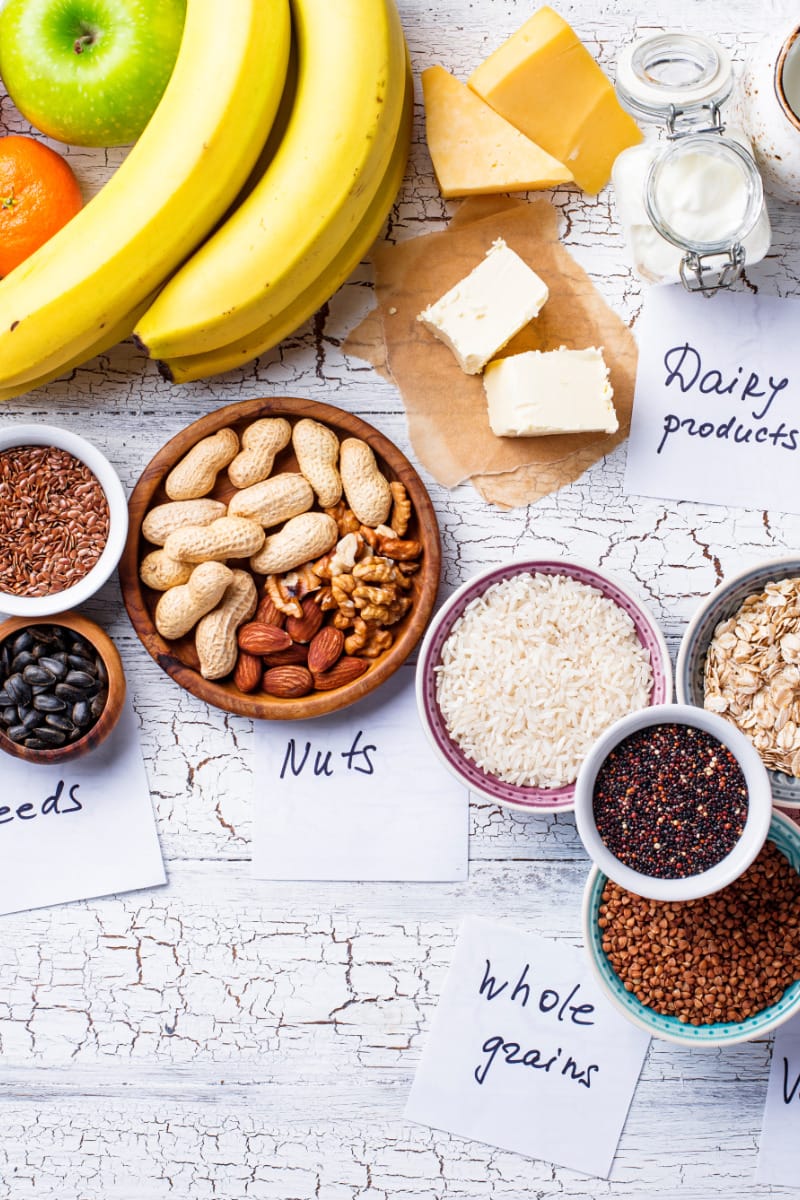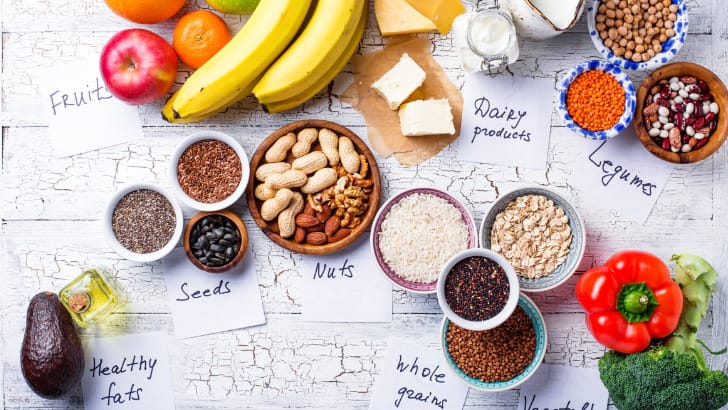Searching for ways to add more nutrition to your diet? Maybe you’re trying to shed a few pounds, prep for a sporting event, or more generally improve your energy level and sense of well-being.
No matter the reason, there is a proven way to eat healthier: planning for and eating vegetarian foods more often. Vegetarian meal planning involves structuring meals with vegetables are the core ingredient, rather than meat. Studies show that vegetarian diets have some serious health benefits, such as lower intake of saturated fat, and higher intake of powerful nutrients like magnesium and vitamins C and E.
Vegetarian diets are also associated with faster weight loss, reduced cancer risk, better blood sugar stabilization, and improved heart health.
Even if you don’t identify as a vegetarian, with the right kind of planning, incorporating more vegetarian dishes into your diet can boost your health and improve your quality of life.
Healthy vegetarian meal planning: Don’t just cut out meat
A common mistake people make when “going vegetarian” is cutting out meat without a real plan for replacing it. Go that route and you can easily end up consuming too much sugar, fat, and/or salt and not enough nutrient-rich foods. A vegetarian diet that consists mostly of potato chips and cookies, for example, won’t improve your health or general wellbeing.
So, it’s important to understand your nutritional needs and develop a vegetarian meal plan that addresses those needs.
Nutritional challenges of vegetarian meals

The best way to ensure that you benefit from reducing or eliminating meat from your diet is keeping your healthy vegetarian meals balanced. You’ll need a diverse mix of fruits, vegetables, grains, healthy fats, and proteins.
That diversity will help you overcome the common nutritional challenges vegetarians commonly face — such as getting enough calcium, vitamin D, vitamin B-12, protein, omega 3 fatty acids, iron and zinc, and iodine.
1. Calcium and vitamin D
Calcium and vitamin D together help build and maintain strong teeth and bones. Milk and other dairy products typically have high concentrations of calcium.
You can also get calcium from dark green vegetables like turnips, collard greens, kale, and broccoli. Or, try calcium-enriched and fortified foods such as juices, cereals, soy milk, soy yogurt, and tofu.
To incorporate more vitamin D in your vegetarian diet, eat mushrooms, oatmeal, and yogurt. Or try vitamin D-enriched cow’s milk, soy milk, and rice milk.
Some recipes that can improve your calcium and vitamin D intake:
- Baked potato with broccoli cheese sauce for calcium
- Fried mushrooms for vitamin D
2. Vitamin b-12
Foods rich in vitamin B-12 increase your red blood cell production, which helps circulate oxygen to all parts of your body. If you don’t get enough B-12, you can become anemic.
Unfortunately, vitamin B-12 is mostly found in animal products. Dairy products and eggs are fantastic sources of B-12. But if you’re moving to a vegan diet, you might talk to your physician about B-12 supplements, vitamin-enriched cereals, and fortified soy products.
3. Protein
One of the biggest doubts you may have about going vegetarian is whether you’ll get enough protein. Protein is essential to include in your diet because it helps keep your skin, bones, muscles, and organs healthy.
You can get protein from a variety of sources, including eggs and dairy, soy products, legumes, lentils, nuts, seeds, and whole grains. Meat alternatives, like tempeh and seitan, are also great options for adding protein to your diet.
Egg dishes deliver vitamin B-12 and protein. Try:
To address the challenge of integrating a variety of proteins into your vegetarian diet, enticing prepped meal menus can offer an efficient solution. These provide creative and nutritious meal options that ensure you’re not missing out on essential nutrients. They’re also convenient.
4. Omega 3 fatty acids
Omega 3 fatty acids are a crucial part of the body’s cell membranes and they are involved in various core functions, ranging from blood clotting to heart function. Importantly, the body cannot produce omega 3 fatty acids — so you must get them from your diet.
Foods that are high in omega 3 fatty acids include fish, canola oil, soy oil, walnuts, ground flaxseed, and soybeans.
If you are not a fan of fish, or your diet restricts it, talk to your doc adding other fortified products to your diet. Two of the omega 3 fatty acids, DHA and EPA, are mostly only found in fish.
5. Iron
Iron is an important mineral because our body needs it for growth and development, and to produce hormones and red blood cells. To boost the amount of iron in your diet, you can eat dried beans and peas, lentils, enriched cereals, whole grain rice or pasta, dark leafy green vegetables, potatoes, and dried fruit.
Note that it is harder for your body to absorb iron from plant sources than from meat sources. So take care to add lots of these plant-based iron sources into your diet.
These recipes can help:
6. Zinc
Zinc is another essential mineral that plays a role in many of the body’s main functions and systems, including the immune system, wound healing, blood clot prevention, thyroid function, and even your ability to fully taste and smell.
If you eat dairy, you can get your source of zinc from cheese and yogurt. You can also get zinc from whole grains, soy products, lentils, beans, nuts, and wheat germ. Try making these:
7. Iodine
Iodine supports healthy metabolism and thyroid function, stabilizes your mood, and contributes to healthy teeth, hair, and bones. That’s why the National Institutes of Health (NIH) recommends adults consume 150 mcg of iodine daily.
You can add iodine to your food through iodized salt or by eating cod, seaweed, oysters, Greek yogurt, and enriched pasta. Two interesting vegetarian recipes to try include:
- Smoked gouda macaroni and cheese (used iodine-enriched pasta)
- Avocado fries (use Greek yogurt in the dressing)
Healthier mind and body with more vegetables
Switching over to a vegetarian diet can be a great way to live healthier. Always discuss any major diet changes with your physician first! With your doc’s clearance, plan your vegetarian meals so they include a variety of essential nutrients. And remember to have fun preparing and enjoying new, diverse foods along the way.
Your mind and your body will both thank you when you make the jump to a healthy vegetarian diet, so you might as well get to it!
